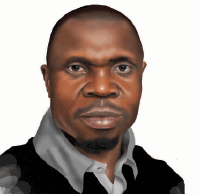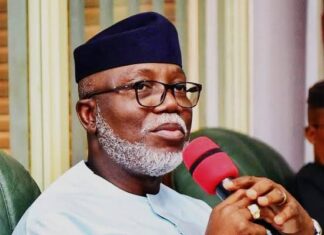Yet, another bloody blast. Again, there is so much blood on the streets. Look at those mangled bodies, broken bones and headless limbs. A few minutes earlier, these were living souls; young men and women full of ambition. Some were shoppers. Others were shop-owners. What about the visitors who happened to be in Abuja and decided to visit the legendary Emab Plaza? They simply walked into the line of fire and got roasted.
My heart bleeds! Where does this lead us as a people, and a nation? What have we done wrong? Do we deserve to be so punished? What is it that Boko Haram want? How did we arrive here?
When it started, a lot of people thought Boko Haram was a Northern conspiracy against a South South president of Nigeria. That theory or belief has since been adjusted. Boko Haram is a phenomenon against the Nigerian state. It is an agent of death.
On that Wednesday afternoon, at a few minutes past 2pm, I left the National Judicial Institute (NJI) for Emab Plaza. I needed to check up a sports shop. Fully aware of parking space problem there, I decided not to drive. I took a taxi.
A few minutes later, I had a call from my friend, Young, who reminded me of a document he sent to my mail box. I quickly apologised before telling him that I was yet to read the document. I asked if he could print a copy for me, so that I could quickly read through while being driven around. He agreed.
Then I noticed that the driver was about turning left into the road leading to Emab Plaza. Out of divine prompting, I told him to rather go straight, as Young’s office was less than two kilometres away. I said, “Let me pick up the document first, then on the way back, I’ll stop over at Emab.” We drove past.
That is why I’m still alive. At Young’s office, I met my friends: Azibola, a lawyer; and Austin, a journalist. As is always the case between lawyers and journalists, we started arguing over trivial issues.
Suddenly, I realised it was about 3.34pm when the plenary session of the national conference would start. I reluctantly disengaged from the discussion and told the driver to drive straight to NJI. He asked me whether I was no longer keen on going to Emab Plaza; I told him I was running against time.
Another divine intervention! Just before 4pm, I was at the NJI. Then I realised I had a guest who was not allowed into the premises. I called him to apologise. He was not in the least annoyed; instead, he was happy that I was alive as he broke the news of the bombing to me.
He said: “Emab Plaza has been bombed.” I was stunned. The bombing took place between when I changed my mind about going to Emab and when I returned to NJI. This can only be God.
As gentlemen of the press….
Something sinister is happening to journalism. And unless the phenomenon is arrested early, the profession faces the risk of being further messed up by the neophytes. We are facing an era when journalists consider themselves more important than the job. It sounds to me like a dangerous development.
Gone are the days when news, yes, exclusive news, and your ability to have it factually reported and painstakingly cross-checked, constituted the yardstick to measure your worth as a journalist. These days, instead of being remembered for great headlines, what you hear is a reporter repeatedly asking: “Don’t you know me? I mean, you should know me.” This is ambush journalism.
Wednesday last week, some journalists covering the national conference went wild over a comment by the Conference Chairman, Justice Idris Kutigi, dismissing the gallery, so that the conference could go into a closed-door session to discuss a report on national security.
I was not in the hall when the chairman spoke; but I was told his language was undiplomatic. On my return, I saw three of my colleagues shouting at the top of their voices. One of them was being physically restrained by three veteran journalists who are delegates to the conference. He bluntly refused to listen and kept announcing his professional pedigree.
If the protest was only about what the chairman said, it would have been understandable. But my colleagues went a bit too far. One of them was lousily brandishing his “dangerous” credentials and boasting very loud about how he could write one report that would close down the conference.
Even when the Conference Deputy Chairman, Professor Bolaji Akinyemi, later went outside to apologise over the chairman’s rather harsh comments, my colleagues insisted the chairman needed to have come to them on his knees.
As “gentlemen of the press”, we can protest over injustice without going overboard. The best protest, for a journalist, is done with pen and paper. Parliaments and conferences will always have closed-door sessions. No group of people anywhere in the world will discuss national security at a press conference.
The job of a public officer is to hide information; that of a reporter is to fish out those hidden information and be guided by ethical consideration and national interest in the usage. Let our work announce us; we must not boastfully announce ourselves.













